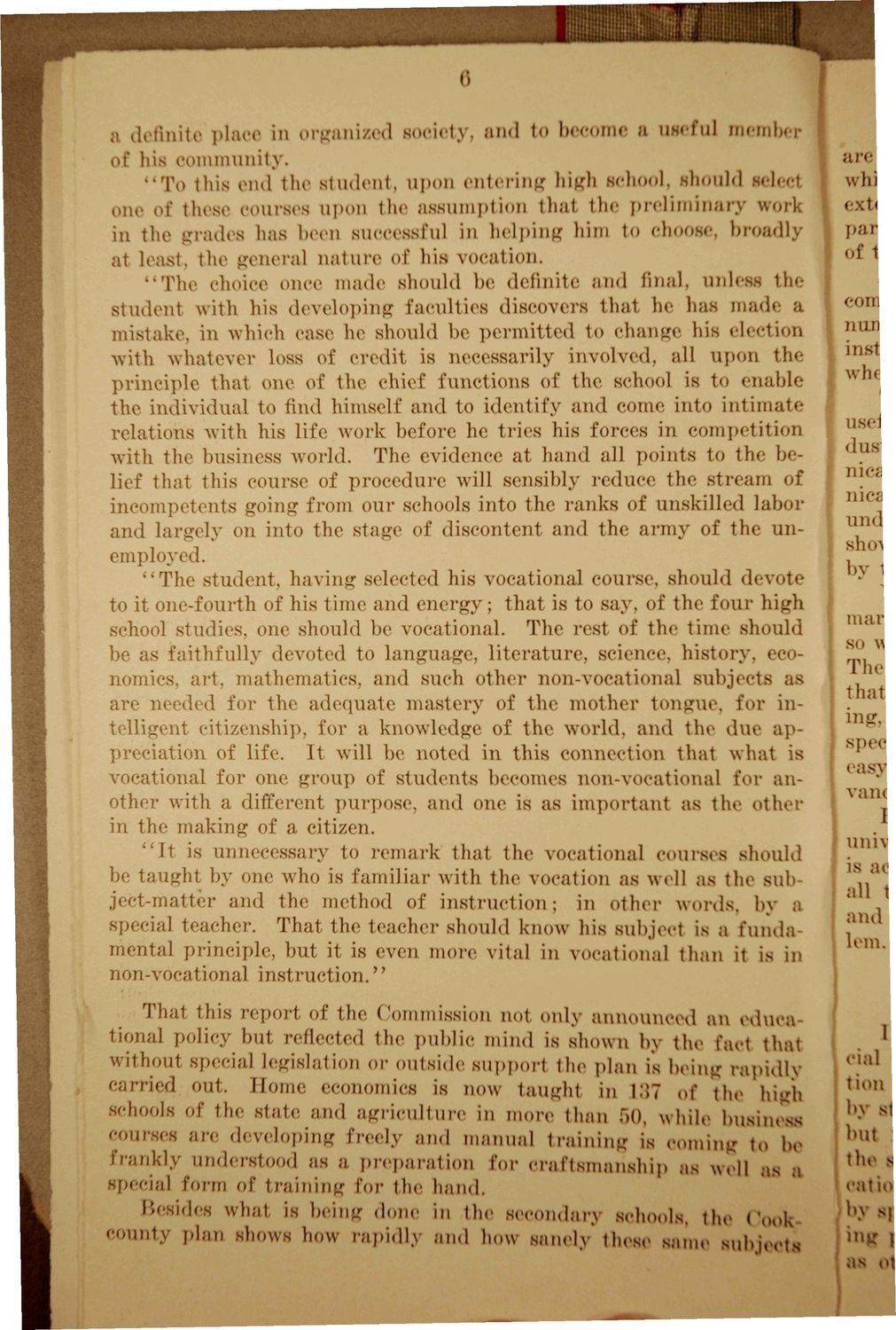Caption: Booklet - What is Involved in a Vocational Education (Davenport) (1915)
This is a reduced-resolution page image for fast online browsing.

EXTRACTED TEXT FROM PAGE:
definite plac< in organis I society, and to become a um-ful membei of his immunity. "To this end the Btudent, upon entering high school, should m-l t one of these courses upon the assumption thai the preliminary wor] in the grades lias been BUCCessful in helping him to CIIMOM broad) at least, the general nature of his vocation. "Tlu choice once made should be definite and final, unless th< student with his developing faculties discovers thai he has mad mistake, in which ease he should be permitted to change his election with whatever loss of credit is necessarily involved, all upon the principle that one of the chief functions of the school is to enable the individual to find himself and to identify and come into intiinat< relations with his life work before he tries his forces in competition with the business world. The evidence at hand all points to the 1 lief that this course of procedure will sensibly reduce the stream of incompetents going from our schools into the ranks of unskilled tabor and largely on into the stage of discontent and the army of the unemployed. " T h e student, having selected his vocational course should devofc to it one-fourth of his time and energy; that is to say. of the four high school studies, one should be vocational. The rest of the time should be as faithfully devoted to language, literature, science, history, < oliomi- art, mathematics, and such other non-vocational subjects as are need 1 for the adequate mastery of the mother tongue, for intelligent citizenship, for a knowledge of the world, and the due appreciation of life. It will be noted in this connection thai what is vocational for one group of students becomes non-voeational for another with a different purpose, and one is as important as the other in the making of a citizen. "It is unnecessary to remark that the vocational courses should be taught by one who is familiar with the vocation as well as the subject-matter and the method of instruction; in other words, by a special teacher. That the teacher should know his subject is a fund a mental principle, but it is even more vital in vocational than it is in } non-vocational instruction.' That this report of the Commission nol only announced an educational policy but reflected the public mind 1 shown by the fact that 8 without special legislation or outside support the plan is being rapidh carried out. Home economics is now taughl in 137 of the hijr'h schools of the state and agriculture in more than iO, while buainos? courses are developing freely and manual training is coming to h, frankly understood as a preparation Tor craftsmanship as well as special form of training for the hand. Besides what is being done in the secondary schools, the I fc. >Unty plan shows how rapidly and how sanely those une snbj (fi
|